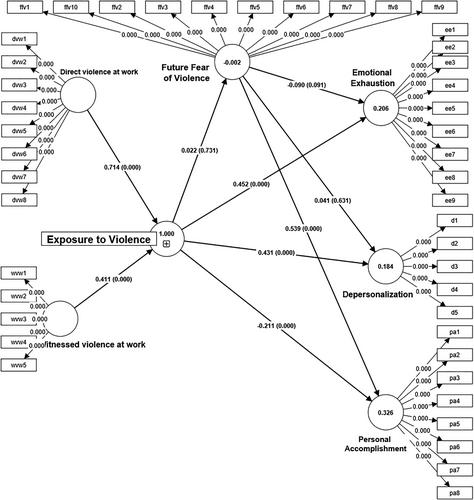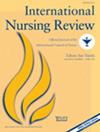The Complex Dynamics of Violence and Burnout in Healthcare: A Closer Look at Physicians and Nurses
Abstract
Aims and objectives
This study aims to examine the mediating role of fear of future violence in the relationship between exposure to violent events at work and burnout among physicians and nurses.
Background
Workplace violence is an escalating concern within healthcare institutions in Türkiye. Increasing exposure to violent events among healthcare professionals contributes to heightened fear of future violence, which may in turn exacerbate burnout.
Methods
A cross-sectional research design was utilized, collecting data via an online survey distributed to 387 physicians and nurses. The hypothesized model was analyzed using structural equation modeling techniques implemented in AMOS and SmartPLS software.
Results
The analysis revealed that exposure to workplace violence significantly elevated the depersonalization and emotional exhaustion dimensions of burnout. Conversely, it was associated with a paradoxical decrease in the personal accomplishment dimension. Notably, no statistically significant relationship was found between exposure to violence and fear of future violence. These findings underscore the complex interplay between various burnout dimensions and the impact of workplace violence on physicians and nurses.
Discussion and conclusion
Workplace violence emerges as a significant contributor to burnout among physicians and nurses, affecting emotional exhaustion, depersonalization, and personal accomplishment in multifaceted ways. However, the anticipated relationship between exposure to violence and fear of future violence was not supported by the data, indicating a need for further research in this area.
Implications for nursing policy
The findings of this study indicate that health policies in Türkiye should prioritize strategies aimed at preventing and managing violence against physicians and nurses. Measures such as violence management training, strengthening organizational support systems, and implementing clear protocols for reporting and responding to violent incidents can help mitigate burnout among physicians and nurses.


 求助内容:
求助内容: 应助结果提醒方式:
应助结果提醒方式:


